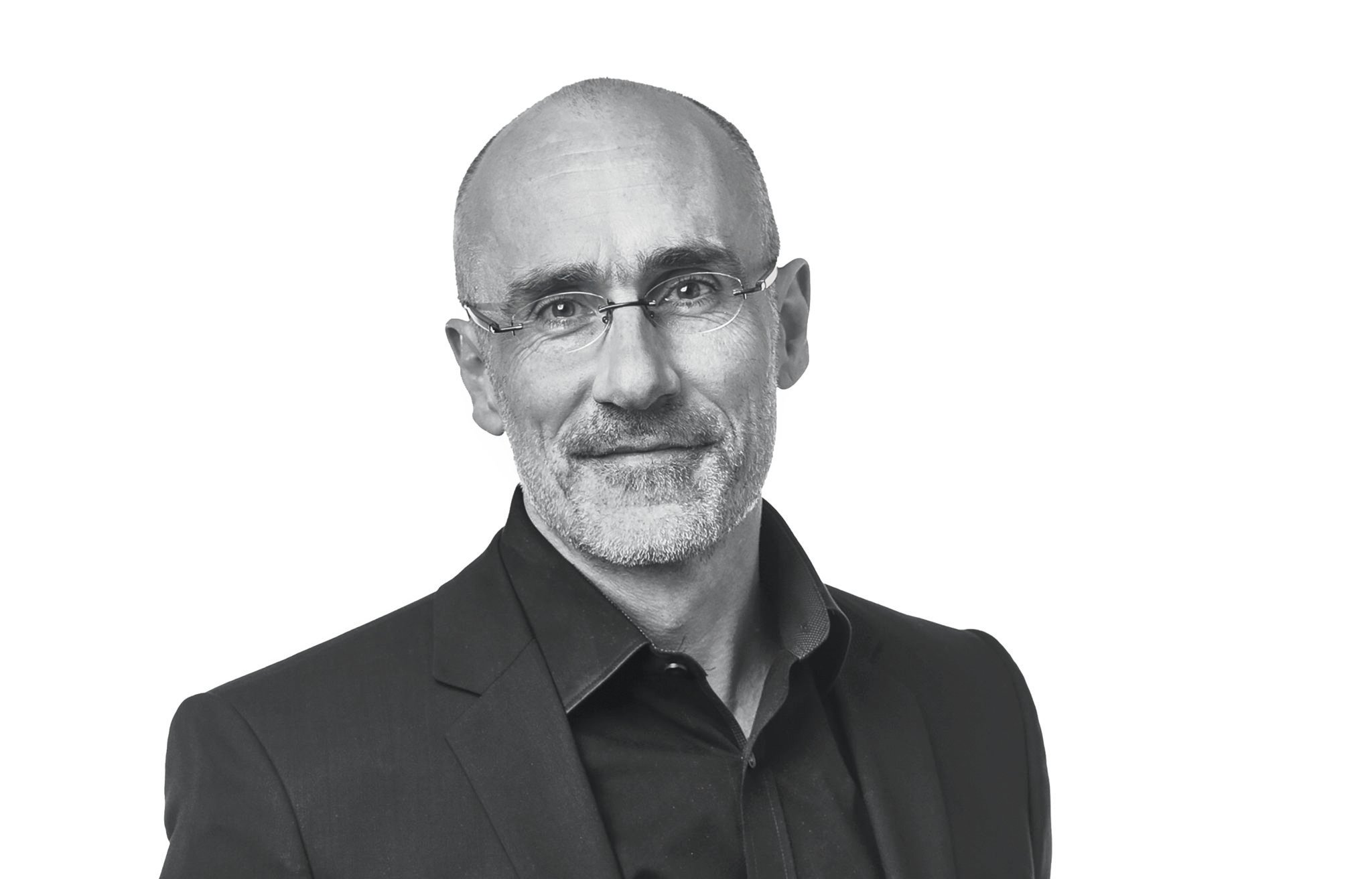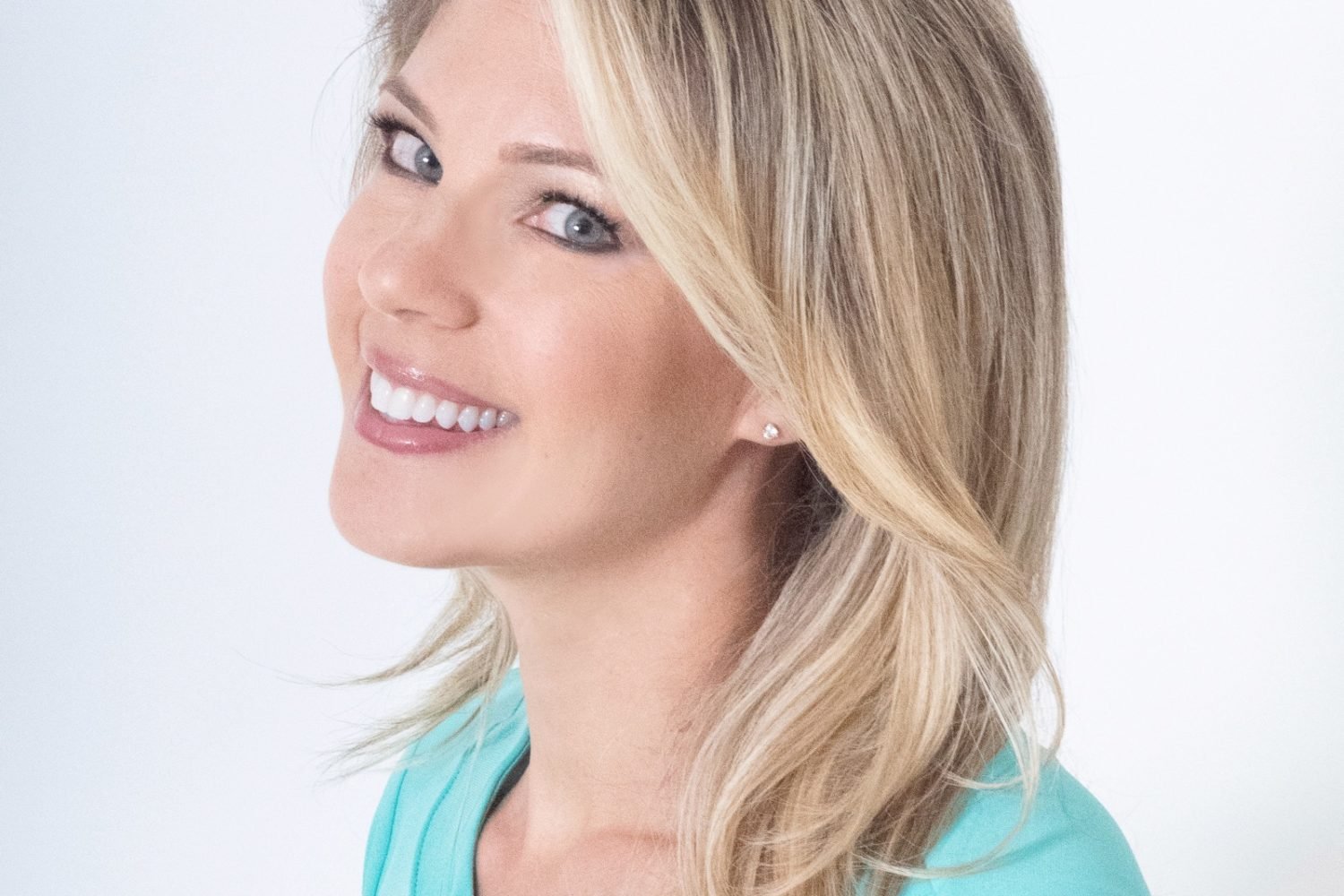Arthur C. Brooks is the author of a popularAtlantic column that tackles a subject of increasing urgency in a relentlessly depressing world. Officially called “How to Build a Life,” it could well be known by a simpler name: the happiness column. Since it launched in April, the weekly offering collects all sorts of scientific research and useful advice about our ongoing collective effort to enjoy life in the 21st century.
If that seems off-brand for a longtime denizen of Washington’s conservative intellectual establishment, you don’t know Brooks. A Harvard professor who focuses on leadership and management issues, and before that the head of the conservative DC think tank American Enterprise Institute, Brooks is also a former Washington Post columnist, the author of several books about culture and American conservatism, and—oh, yeah—a former professional French hornist.
Because aspirational happiness has been much on our minds of late, we called Brooks at his Newton, Massachusetts, home for thoughts on the perils of loneliness and the strange state of the Republican Party.
Could there be a riper time to start a happiness column than during a pandemic?
It’s actually a challenge, because everybody’s thinking about nothing except the pandemic. The column is about happiness, but it’s just in general about how to build a constructive life. [I’ve also written an installment] about the importance of unhappiness in building your life. In a way, it’s easy to link everything to the pandemic. But it’s so boring to do that.
Why are you interested in unhappiness?
I am a big proponent of unhappiness. Whereas the Woodstock cult was “If it feels good, do it,” I think the cult we have today is “If it feels bad, make it stop.” And that’s really dangerous for our development and for society. There’s almost nothing truly meaningful we accomplish or experience that doesn’t actually have pain or loss as part of it. When you look back to key moments in your life where you learned the most and you grew the most, they all have pain in them. Every single one!
Where does inspiration for your columns come from?
I had this one column running around in my head about loneliness, and I was talking to a guy on a plane. He was 72. He said, “I just moved nine months ago to Big Sur, California.” Didn’t know a soul, came out there by himself. I said, “Are you lonely?” And he started crying. That’s life, man. That’s what happens. I know the data, I’ve read the studies. I’ve participated in the research on the loneliest people in America—they’re 60-year-old men. And they make decisions that make them lonelier! But I didn’t have the juice—the real thing—until I talked to that guy.
What kinds of decisions make people lonelier?
People don’t serve their own needs very well. Mother Nature tells you, “You want to be happy? Here’s the formula: money, power, pleasure, fame.” But that’s a mistake. Mother Nature does not care if you’re miserable. Mother Nature wants you to push your genes through history. The secrets of happiness are faith, family, friends, and work where you can serve others and you can earn your success. That’s it. So you’ve got the right four and the wrong four, and an unexamined life pushes you toward the wrong four. And you know who’s worst about this? Dudes. It’s, like, 60- or 70-year-old men. “Oh, I feel crappy, I feel so bad. What do I need? Money, power, pleasure, fame.” And they make the mistake again and again and again.
Seventy-year-old men worshiping money, power, pleasure, and fame. That sounds awfully similar to someone I hear about on the news. Do you think Donald Trump is a happy person?
It’s hard to say. I don’t know him, and I would need to meet him and talk to him and have him be honest with me before I could actually say. I know the data, I know the patterns, and I know the kind of person I want to be when I’m 74.
Researchers have noticed crises of mental health in two very different populations: young, diverse students on college campuses, where depression is skyrocketing, and aging white men and women in middle America, who are seeing unprecedented rates of “deaths of despair.” Is that a coincidence?
That’s super-interesting. We’re basically talking about what determines a culture of despair. The first thing you’re going to want to know is what they have in common. The depression problem on campuses—50 percent of Yale undergrads seek mental-health services. And then on the blue-collar, white-male side, there’s despair that’s manifesting in drug overdoses, deaths, and suicides. I actually think those are flare-ups that are part some of the same systemic problems.
What are they?
Thirty years ago, I think we made a bargain with engineers and bureaucrats to make us happy, and their solutions were all mechanistic solutions to complex human problems. So systems theory says a “complicated” problem is one that’s very difficult to solve, but once you solve it, you can solve it over and over. Like making a jet engine: They were super-hard to make, but once we made them, we could stamp them out and they practically never failed.
On the other hand, complex and adaptive human problems are incredibly “simple” but impossible to solve. Who’s going to win—the Bills or the Jets? I don’t care how much computing power you have, you can’t simulate it with accuracy. That’s a complex and adaptive human problem. Match.com or swipe right on Tinder—that’s a curve-fit approach to a “complicated” problem but applied to a complex and adaptive problem, a set of human emotions.
I think we basically turned over a big part of our lives, our economy, and our society to people in social media and government who were going to mechanize the sources of our happiness in a big way. They promised us: Sign up for this program, this service, pay your taxes, be a good citizen, and you’ll finally be happy. That’s the devil’s bargain we’ve made. Now we’re starting to see research linking screens and social media to the outbreak of suicide among teenage girls. It’s the same thing, man. We have a mechanized economy, and public and tech sectors, telling everybody, “Just do this, this, and this and you’re going to be happy.” And it doesn’t work.
Have you heard the question “What’s the opposite of the internet?” The argument is that the answer is fiction. Because fiction, at its core, is about who you could be tomorrow, whereas the internet is obsessed with who you were yesterday—the things you liked, clicked, ate, watched—and trying to replicate that person eternally.
It’s more than that: Life becomes cumulative. And we’ve never had cumulative life.
How do you mean?
Cumulative means that you have a distribution that builds on itself. So you’re going throughout your life, and more and more and more you’re being defined by everything that’s happened in the past. I’m 56, and what people in my generation would do in college was that every semester, they tried on a different identity: Now I’m a Beat poet, now I’m a trombone player, now I’m a pothead, now I’m an evangelical Christian.
You can see why that online life would be especially terrible for the development of teenagers. At a period of profound change, everything is potentially documented.
It’s much harder. You’re tethered because your life is cumulative. It’s recorded. It’s not who you were yesterday—it’s a total of what you’ve always been. It’s a dangerous thing. There’s a joke that all of the 2036 candidates have already been ruled out because of something that’s on social media right now.
Speaking of politics, let me ask you about your 2015 book, The Conservative Heart, which laid out a vision of conservatism centered on compassion, kindness, and reducing poverty. That is . . . not what has happened.
The thing about political economy is that there’s no permanent victories and no permanent defeats. I have a very strong vision in how I see the world. I want to lift people up and bring them together. And I have certain conservative memes, just because I think capitalism is pretty neat and I think democracy is a pretty good idea. But ultimately, what we’re left with is not the what of our politics but the why of our souls. And what drives everything I do is the ideas—not the practical, policy ideas but the moral ideas articulated in the conservative heart. And when it came to embracing both the rhetoric and the practical ideas of that book, it wasn’t its time. It was my [entry] into the ideological sweepstakes. I lost. For now.


















